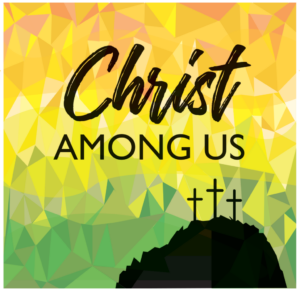 Talashia Keim Yoder reframes Lenten confession and penitence with the life-giving ways we can find God in the desert.
Talashia Keim Yoder reframes Lenten confession and penitence with the life-giving ways we can find God in the desert.
Talashia Keim Yoder is a pastor at College Mennonite Church in Goshen, Indiana, where she lives with her husband, Daniel, and their two children. She is passionate about exploring faith at home and in other intergenerational settings. Talashia is also the theater director at Bethany Christian Schools and the writer behind “This is the Story” (godsstorygodssong.com) and “Building Faith” (buildingfaithfamily.com).
Talashia is the author of “Lent at Home 2024,” a downloadable worship guide for families, published by Mennonite Education Agency, an agency of MC USA.
Lent, like Advent, is a penitential season. Ooh, doesn’t that sound fun?! I’ll admit that I shy away from penitential, confessional language sometimes. I react to a Christian culture that has a history of over-emphasizing sinfulness. I believe that we, children of God, created in the image of God, are blessed, beloved and good at our core. So, I get tired of the opposite message being preached from pulpits and social media. My ire is particularly raised when children are treated as sinful beings to be bent into submission. Yup, I have opinions.
And then these confessional seasons confront me. Yes, we are created good. And we miss the mark. We join all humans through history in messing up and needing to renew our relationships with God, other humans and all of creation. But we live in a culture that sometimes teaches us to cover up our mistakes instead of acknowledging them. We learn from our world that there’s power in always being right and seeming to be the best. Lent and Advent offer a yearly counterbalance, a reminder that the real power lies in honest confession and repentance.
 One of the ideas I offer this year in the at-home resource is the “Desert Quest.” Jesus began his ministry with 40 days in the wilderness, and this story is the inspiration for Lent being 40 days long. We often focus on the really hard parts of Jesus’s time in the desert. Starvation! Temptation! Isolation! Why in the world would we want to join that in Lent? But in an interview on The Bible for Normal People podcast, Chris Hoklotubbe, a member of the Choctaw Nation, reframes the desert time from a Native American perspective. Jesus was on a 40-day spiritual quest! It was Jesus’ extended Sabbath that prepared him for his ministry. Hoklotubbe muses that perhaps it was on his quest that Jesus came up with some of his musings like, “Consider the lilies of the field…”
One of the ideas I offer this year in the at-home resource is the “Desert Quest.” Jesus began his ministry with 40 days in the wilderness, and this story is the inspiration for Lent being 40 days long. We often focus on the really hard parts of Jesus’s time in the desert. Starvation! Temptation! Isolation! Why in the world would we want to join that in Lent? But in an interview on The Bible for Normal People podcast, Chris Hoklotubbe, a member of the Choctaw Nation, reframes the desert time from a Native American perspective. Jesus was on a 40-day spiritual quest! It was Jesus’ extended Sabbath that prepared him for his ministry. Hoklotubbe muses that perhaps it was on his quest that Jesus came up with some of his musings like, “Consider the lilies of the field…”
Joining Jesus in this quest means being in nature regularly. It means mindfulness – paying attention to our senses and to what they tell us about the natural world. It means listening to God’s good creation and trusting that it has wisdom for us. It means remembering our place as part of this creation. And just as this desert time resourced Jesus for ministry, I wonder how it might resource us. Perhaps it will bring clarity to where we have missed the mark. Perhaps it will open space in us for honesty and release. Perhaps it will give us courage and strength for the change that comes with repentance. Perhaps it will root us in joy, which undergirds the penitential season.
As humans, we share a long history with God. Our story as people of God is full of twists and turns, from caring for the earth alongside the Creator in Eden, to longing for a Messiah in exile, to spreading to the ends of the earth, blown by the Spirit. Over and over in that story, the people of God have missed the mark and God has renewed covenants with God’s people. This year’s Lenten journey invites us to step into what it means to be a covenant people, and to do that with Jesus by our side. As the writers of the Leader materials put it, “Christ is among us, reminding us of who we are, and even when we fail, reminding us of grace and calling us beloved.”
Take a breath. At your core, God has created you good. You are blessed and beloved. Sometimes you miss the mark. Jesus is with you. Confess, release, and step back into the promise of your birth, the promise of covenant, the promise of Christ with us.

